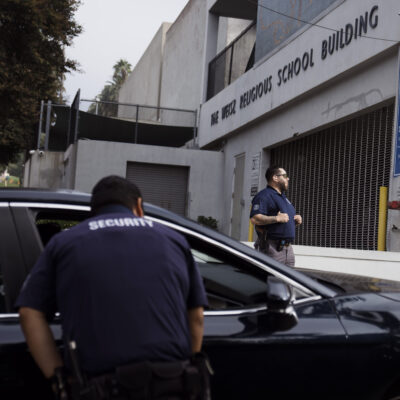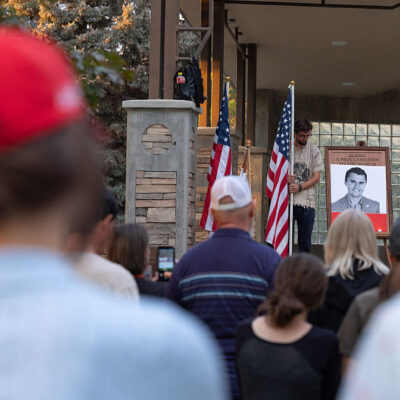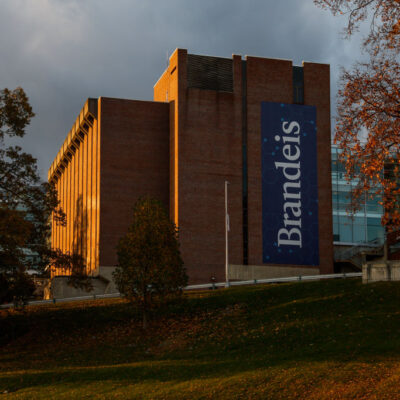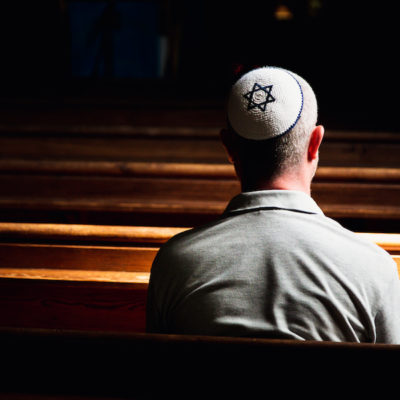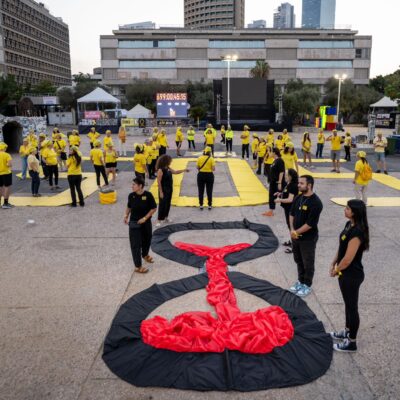Your Daily Phil: Herzog offers compromise for Israeli antisemitism confab kerfuffle
Good Wednesday morning.
In today’s edition of Your Daily Phil, we report on Israeli President Isaac Herzog’s effort to prevent further cancellations from the government’s antisemitism conference by hosting a meeting for Jewish leaders without far-right politicians from Europe. We interview Orna and Ronen Neutra, whose son, Omer, was killed in the Oct. 7 attacks and is being held captive in Gaza, and speak with Bret Stephens on the sidelines of a conference for Zionist rabbis. We feature an opinion piece by Shai Franklin highlighting ways foundations can support nonprofits whose missions and budgets are being impacted under the Trump administration; one by Josh Joseph about nurturing Jewish communal professionals as they journey along the Jewish leadership pipeline; and one by Rebecca Voorwinde about opportunities for candid exchange between Israeli and American Jews. Also in this newsletter: Juan Dircie, Eldan Kaye and Gal Gadot.
What We’re Watching
A new exhibition opening today at the Jewish Theological Seminary will feature the oldest Jewish book in the world — the Afghan Liturgical Quire (ALQ) — which will be on display until July 17.
What You Should Know
As more and more Jewish figures drop out of the Israeli government’s upcoming antisemitism conference over the inclusion of far-right politicians, Israeli President Isaac Herzog has offered a compromise — a gathering at his residence in Jerusalem for world Jewish leaders the day before the main event, granting them the option of participating in the conference without sharing a stage with the European parliamentarians, reports eJewishPhilanthropy’s Judah Ari Gross.
This new meeting will be held next Wednesday evening and will occur alongside, but not formally part of, the Ministry of Diaspora Affairs and Combating Antisemitism’s “International Conference on Combating Antisemitism.” The president’s office said in a statement that the gathering “will feature prominent leaders from the Jewish world and include a panel of representatives from Jewish communities worldwide.”
A source familiar with the plans told eJP the guest list for this gathering has not been confirmed and that the attendees who have already canceled their participation in the conference — Anti-Defamation League CEO Jonathan Greenblatt, British Chief Rabbi Ephraim Mirvis, French philosopher Bernard-Henri Lévy, among others — are not expected to reverse their decisions and fly in for this meeting. Though some of them, such as Greenblatt, may send video addresses, the source said, speaking on condition of anonymity.
Jewish leaders and German representatives began pulling out of the conference once was announced that the attendees would include far-right European lawmakers, such as Marion Marechal, a far-right French representative to the European Parliament and granddaughter of French politician and Holocaust denier Jean Marie Le Pen; Jordan Bardella, president of the far-right French National Rally party, a successor of Le Pen’s National Front; and Hermann Tertsch, a far-right Spanish member of the European Parliament. Bardella, whose party was publicly supported by Israeli Diaspora Affairs Minister Amichai Chikli in France’s recent election, is due to deliver a keynote address on the second day of the conference.
The far-right politicians will not be invited to the president’s event. And the source said that Herzog will not appear at the second day of the conference.
The inclusion of the far-right politicians in the antisemitism conference — without discussing the matter in advance with their countries’ Jewish communities — drew criticism even from those who opted to remain in the conference, such as former Jewish Agency Chairman Natan Sharansky.
PARENTAL CARE
Parents of fallen captive soldier Omer Neutra criticize Israel’s renewed strikes on Hamas, say they threaten hostages
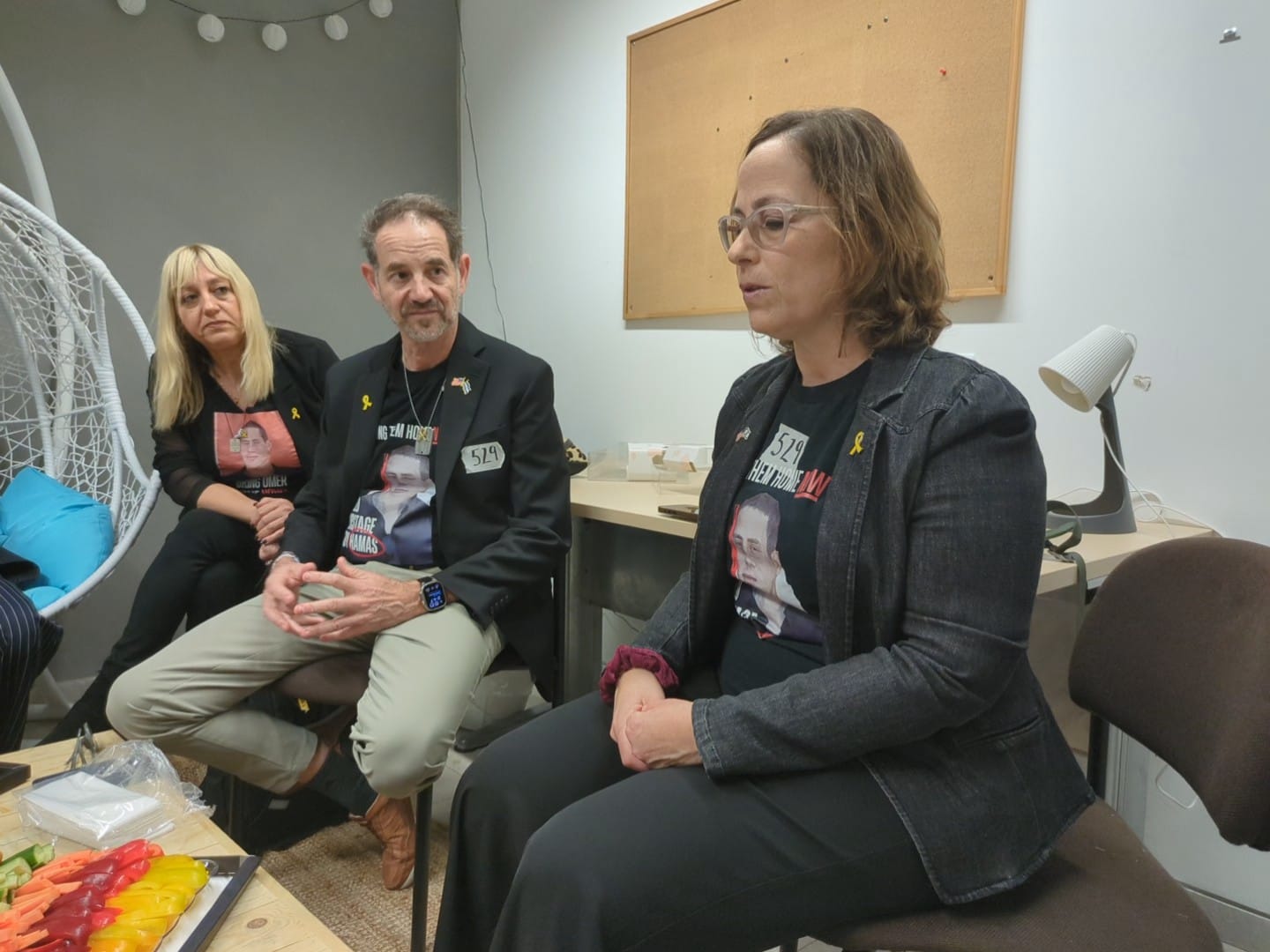
The parents of fallen American Israeli soldier Omer Neutra, whose body is being held captive by Hamas in Gaza, denounced the Israeli government’s decision to resume the war against the terror group in the Strip, saying the move puts the remaining hostages in peril, reports eJewishPhilanthropy’s Judah Ari Gross. Speaking to journalists yesterday on the sidelines of the Ruderman Family Foundation’s annual conference at the University of Haifa, Ronen and Orna Neutra said that they did not believe that the strikes launched by Israel against Hamas in the predawn hours of Tuesday morning would pressure the terror group into releasing additional hostages. “There’s an understanding by the two governments — the American and the Israeli — that [renewed strikes] are the way to return the hostages. We are not at all convinced that this is the case,” Ronen Neutra said.
The people, the institutions: The Neutras, who are both Israeli but have lived in Plainview, N.Y., for many years, expressed amazement and appreciation for the national and local American Jewish communities’ outpouring of support for them, alongside disappointment with the mainstream American Jewish communal organizations, whom they said did not sufficiently support the cause of the hostages. “What we’ve experienced within the communities from the people, it’s unbelievable support throughout this past year,” Orna Neutra said. “When they announced that Omer had been killed, thousands of Jews from all of the metropolitan New York area came to his memorial service and shiva. They stood in line, waiting in the cold to come in.” Ronen pointed toward the mainstream Jewish communal organizations’ inclination for deference to Israel as the reason why these groups were less forceful about the hostage issue. “The wall-to-wall support that most of the Jewish organizations have for Israel, no matter what the government does, worked against us,” he said.
CENTER PATH
‘We should not have to forsake our liberalism to fight this battle’: Bret Stephens on Trump’s war on antisemitism
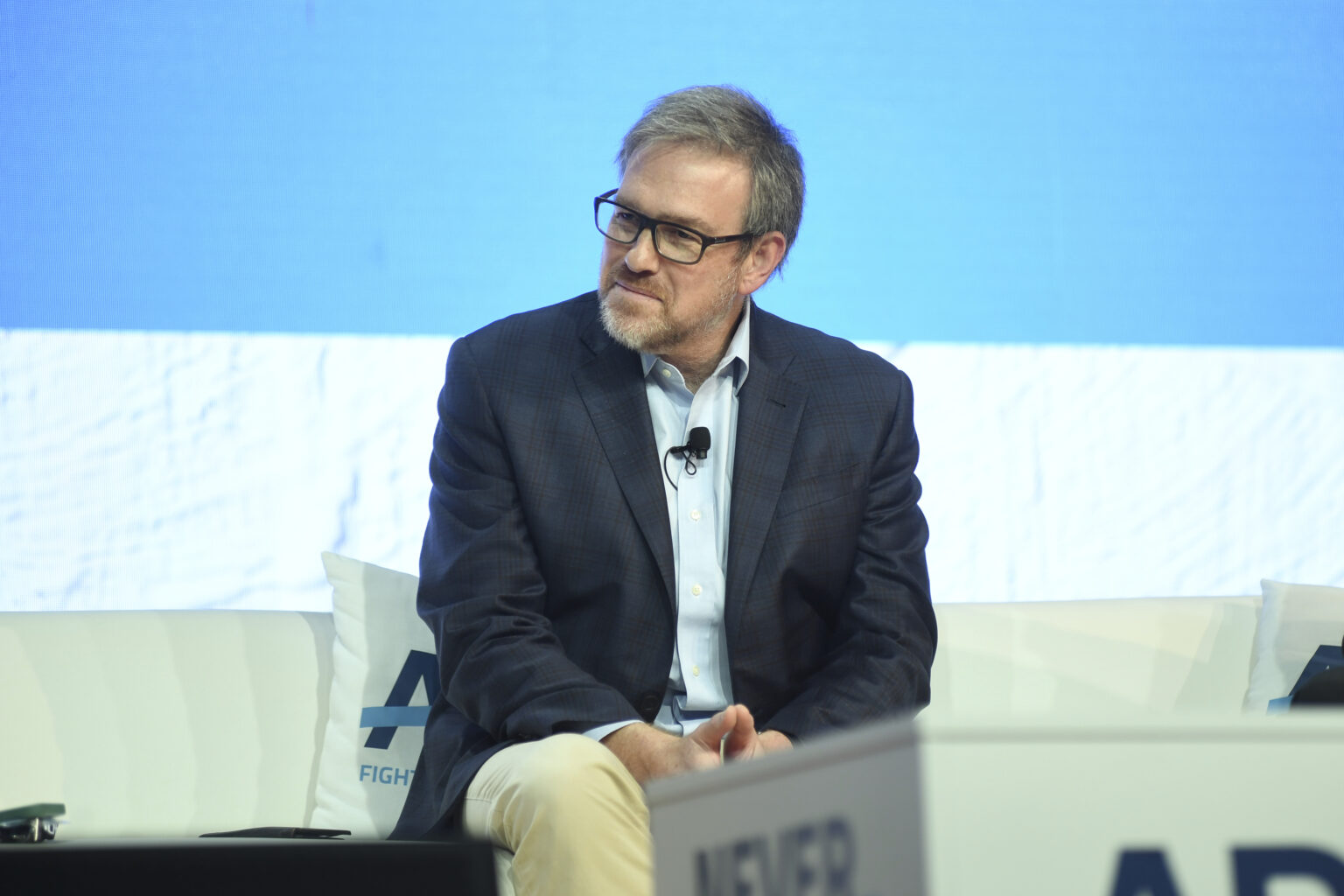
As President Donald Trump set his sights on Columbia University this month, pulling $400 million in federal funding and moving to deport a former graduate student who led last year’s anti-Israel encampment, predictably partisan responses emerged. The president’s detractors cried that he is mounting a full-scale attack on higher education and liberal values. His supporters cheered what they see as a president hell-bent on fighting campus antisemitism and progressive excess. New York Times columnist Bret Stephens sees merit in both views — and thinks taking the center path is actually very Jewish. “Why be Jewish unless you can make fine-toothed distinctions between different situations?” Stephens told Gabby Deutch for eJewishPhilantropy’s sister publication Jewish Insider, in an interview yesterday on the sidelines of a Miami gathering for Zionist rabbis organized by the Leffell Foundation, Paul E. Singer Foundation and Maimonides Fund.
Case by case: The funding cuts to Columbia, where antisemitism has flourished since the Oct. 7 Hamas attacks and ensuing war, do not bother Stephens. “They are not entitled to the money. They have a multibillion-dollar endowment. Figure it out,” he said. But while Columbia may have deserved it, for instance, Johns Hopkins University — which lost $800 million in federal funding as a result of Trump’s decision to freeze USAID projects — did not, Stephens argued. Though he may not be troubled by Trump’s targeting of Columbia as an institution, he thinks the arrest of its former student and protest leader Mahmoud Khalil was a step too far. “The current claim, which is that he was saying things we don’t like, strikes me as a violation of the spirit of the First Amendment,” Stephens said. “It sends a chill down every green card holder, which included my wife for her first 16 years in America.” He added: “We should not have to forsake our liberalism to fight this battle.”
Read the full report here and sign up for Jewish Insider’s Daily Kickoff here.
HOW TO HELP
In the Trump 2.0 era, what’s a foundation to do?

“To paraphrase Ecclesiastes, there is a time to bank resources and capital, and there is a time to spend; a time to be silent and a time to speak,” writes Shai Franklin, a former former Jewish community executive and now a lobbyist and consultant, in an opinion piece for eJewishPhilanthropy.
Step up because you can: “The Jewish establishment — including supporters of President Donald Trump — has largely been caught off guard by the ‘new normal’ since Jan. 20… Unlike nonprofits, which depend on fundraising and often must defer to the interests of their lay leaders, foundations and donor-advised funds have far more flexibility to fund, to act and to speak up. Decades from now, family names may be remembered by how they responded when so many causes and constituencies were being threatened and even shut down… Now is the time to ensure grantees have the resilience and adaptability to transition to a new reality where government support and even protection cannot be assumed. Waiting this out, perhaps until after the next congressional or presidential elections, is effectively sitting it out. As important as endowments are for generating interest revenue and undergirding a legacy of impact, and as risk-averse as foundations normally need to be, for many causes today is the rainy day you’ve been saving for.”
READER RESPONDS
Fostering a leadership pipeline for the Jewish future

“Without a passionate and committed workforce, nonprofits cannot reach their full potential in providing the support and programs crucial to the Jewish future. While the high turnover rate and shortage of professionals in this sector — from teachers to administrators to clergy — is often talked about, not enough is said about the long-term effects of these challenges,” writes Josh Joseph,executive vice president and chief operating officer of the Orthodox Union, in an opinion piece for eJewishPhilanthropy. “The assumption is that these challenges would naturally resolve if only salaries went up and finally drew adequate numbers of people to the field and ensured that they stayed. But this might be the wrong way to look at it.”
Value-adding the pipeline: “While employees in all fields aspire to earn more money, 50% of nonprofit employees surveyed by the National Council of Nonprofits cited stress and burnout as primary reasons for leaving their jobs. This is another symptom of the failure of nonprofit organizations to nurture a pipeline of talent. Organizations need processes that encourage employees to join, stay and grow along the way. If that pipeline works well, the supply, too, will inevitably grow. This model has proven itself in the corporate world over the last half-century. The nonprofit world should consider pursuing a similar, but tailored, approach. Building this pipeline is an investment, and it should be prioritized and viewed as such rather than as a cost, an idea recently explored by Joshua D. Margolis and Gali Cooks in eJewishPhilanthropy [‘A talent investment mindset: The next frontier for Jewish communal innovation,’ March 7]. Margolis and Cooks wisely suggested several approaches to seeing talent as an investment, including establishing a healthy culture, offering training and professional development. I would like to build on that and explore how organizations can take such practical suggestions to the next level by thinking about the pipeline itself.”
LET’S TALK
Bridging divides: Why young American and Israeli Jewish leaders must learn from each other
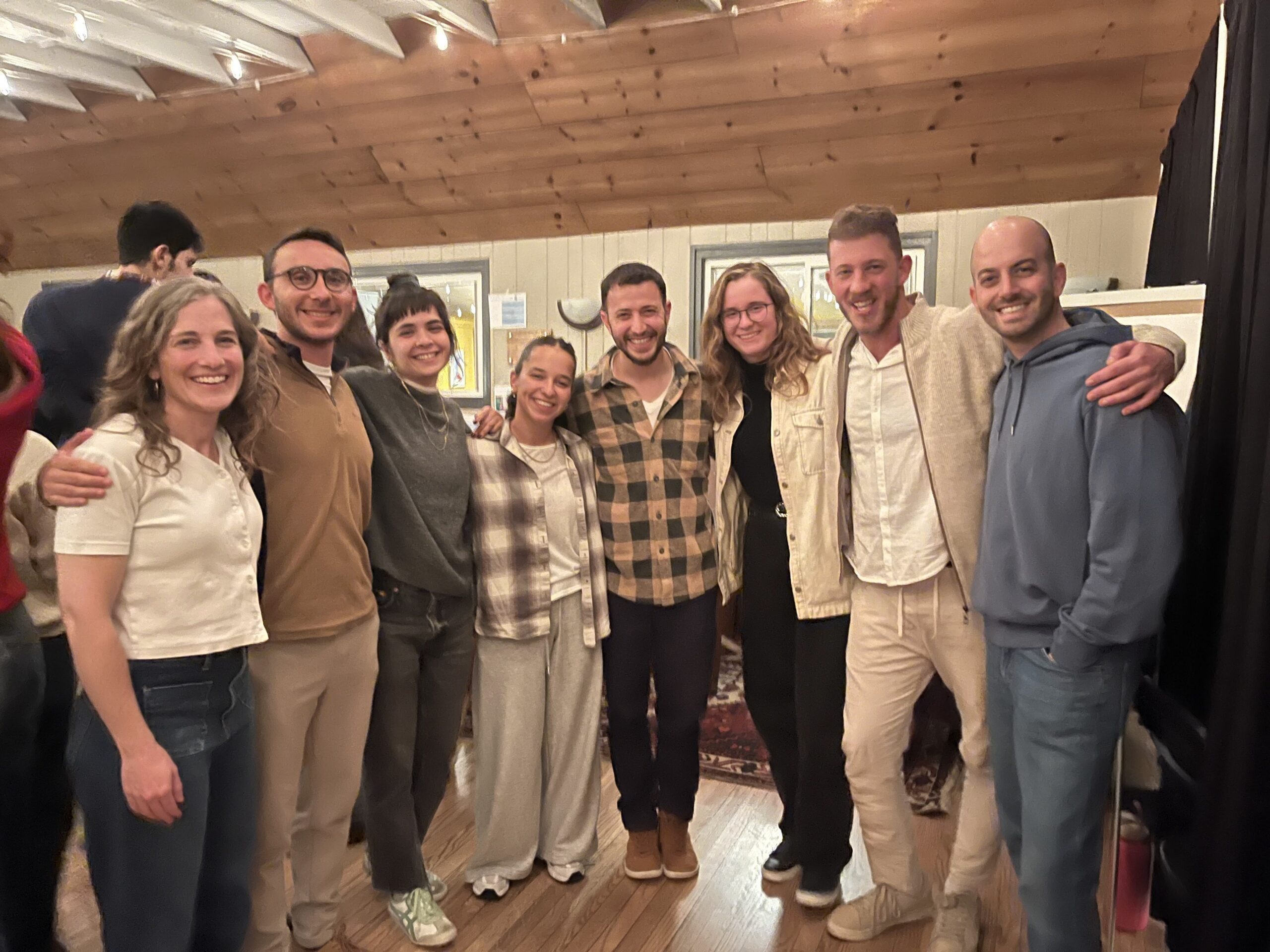
“In a world increasingly shaped by shallow discourse, where social media rewards outrage over understanding, this is what we must rebuild: the skills to listen, to care, to sit with complexity, and to hold space for one another,” writes Rebecca Voorwinde, CEO of the Bronfman Fellowship, in an opinion piece for eJewishPhilanthropy. “Our young people — both Israeli and American — see through the public discourse. They are frustrated by the dishonesty, the posturing, the lack of real engagement. They are looking for something deeper.”
Genuine encounters: “A few months ago, I sat in a room with young Israeli and American Jews who were engaging in the kind of conversation that has become increasingly rare: one that was unscripted, unfiltered and deeply honest… The young Israelis we brought to the U.S. did not come to offer polished talking points. They spoke candidly about their experiences, their grief, their anger and their fears for the future, and they offered a wide spectrum of political views and ideas about what their country needs to move forward in safety… They gained strength in these exchanges because their American Jewish peers truly listened and shared their own range of views, questions and feelings. It reminded them that the Jewish story is not just an Israeli or an American one, and that both distinct communities remain invested in the future and can bolster each other.”
Worthy Reads
Fixing Foreign Aid: In The New York Times, Farah Stockman acknowledges some shortcomings of America’s prior foreign aid regime and puts forth a vision for an improved system. “Although a federal judge on Tuesday cast U.S.A.I.D. a temporary lifeline, foreign aid as we knew it is gone. While some contracts might be brought back under the State Department, it’s unlikely that the U.S. government — the largest donor in the world, according to recent data — will soon restore its foreign aid to the level it was. That doesn’t mean the rest of us should give up trying to help other nations. Those who care about the world and America’s role in it need to create a new vision for what foreign aid could be. It’s early days in the effort to reimagine aid, but this much is clear: It should be leaner and less bureaucratic. It should be based on partnerships that respond to local needs, not pronouncements from Washington. And it will sometimes be fueled by private donations rather than taxpayer dollars. A public discussion has already begun.” [NYTimes]
Word on the Street
A new study by the British Institute for Jewish Policy Research found that more than 630,000 Israelis live abroad…
Juan Dircie has been appointed the inaugural director of the Jewish Community Relations Coalition of New Mexico…
The Elisabeth Severance Prentiss Foundation donated $3.6 million to Hospice of the Western Reserve…
Tilly Shemer has joined Spertus Institute as its next director of strategic communications and advancement…
Megadonor MacKenzie Scott announced that in addition to her charitable giving, she plans to embrace “impact investing” by maintaining a “portfolio of investments in mission-aligned ventures”…
Vered Noam, a professor of Talmud at Tel Aviv University and an Israel Prize winner, has been appointed senior academic advisor to the National Library of Israel…
Open Philanthropy, the grantmaker started by Facebook co-founder Dustin Moskowitz and his wife, Cari Tuna, is investing $120 million over the next three years to address land use regulations and other barriers for housing and infrastructure projects…
The American Zionist Movement raised nearly $40,000 for its Purim Connection Mishloach Manot campaign, providing care packages to 700 Israel Defense Forces lookouts who serve on the Gaza border and their families…
Eldan Kaye, vice president of development and partnerships at the Israeli social lender Ogen, has been named a board member of the micro-loan provider SparkIL, a joint initiative by Ogen and the Jewish Agency for Israel…
Variety interviewed Gal Gadot ahead of her receiving a star on the Hollywood Walk of Fame; she explained why she’s been outspoken about Israel and antisemitism post-Oct. 7: “I was shocked by the amount of hate, by the amount of how much people think they know when they actually have no idea, and also by how the media is not fair many times. So I had to speak up”…
Raif Rashed, a Druze-Israeli man living in New York who survived the Nova music festival attack on Oct. 7, 2023, opened a kosher restaurant in Manhattan’s Garment District, Taboonia, spotlighting his community’s cuisine…
Knesset member Sharren Haskel, who was born in Toronto, called on new Canadian Prime Minister Mark Carney “to go and defend the Jewish community in Canada,” which Haskel said has been “targeted, attacked violently”…
The Wall Street Journal spotlights the founders of Israeli startup Wiz, following the company’s acquisition by Google parent company Alphabet for $32 billion…
Holocaust survivor Gyorgy Kun, who with his twin brother was the subject of Josef Mengele’s experiments at Auschwitz, died at 93…
Former North Carolina state legislator Marshall Rauch, whose Rauch Industries was the world’s largest manufacturer of Christmas ornaments, died at 102…
Pic of the Day
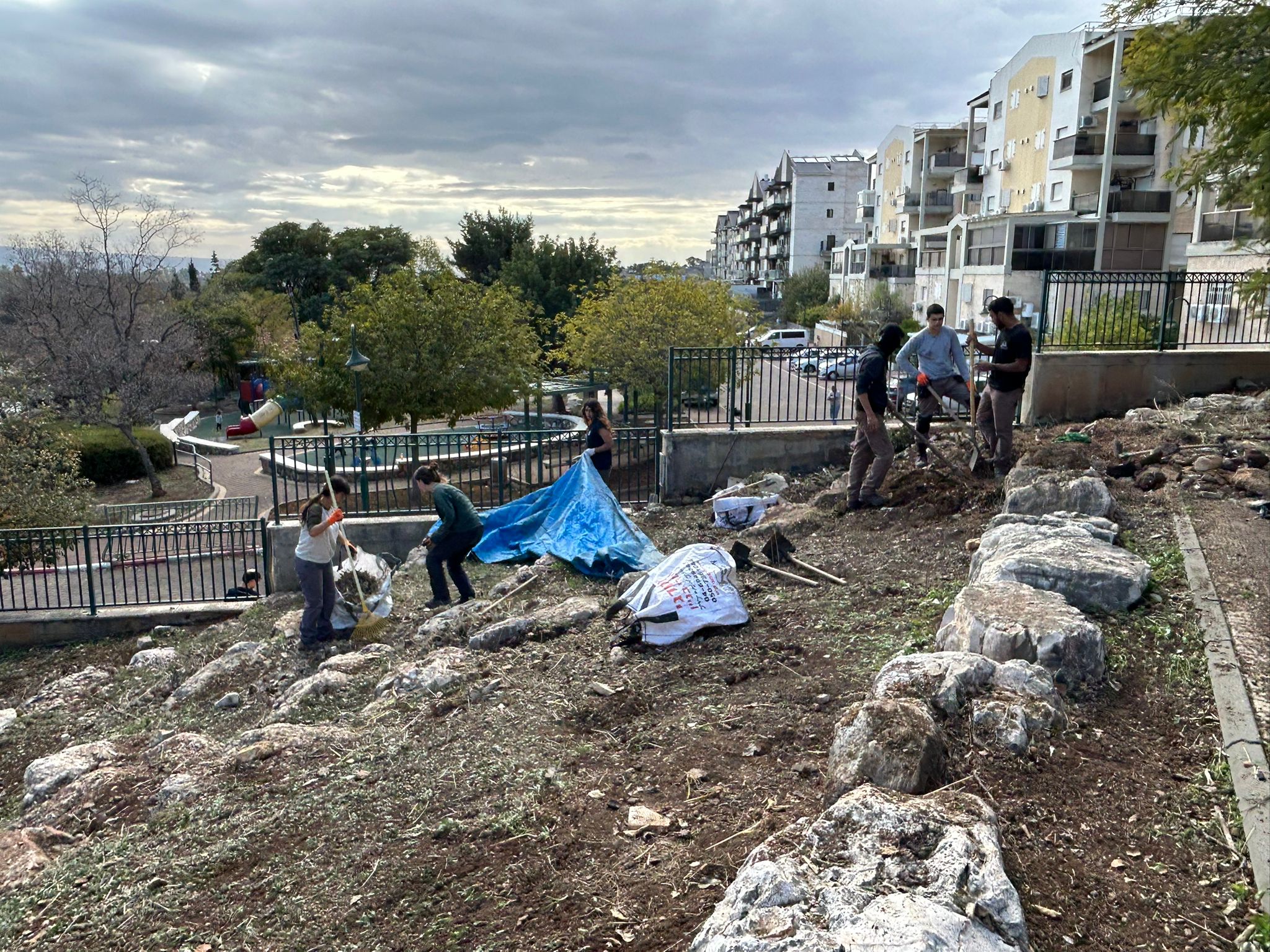
Members of the HaShomer HaChadash movement are seen recently cleaning the northern Israeli city of Kiryat Shmona, which was evacuated for more than a year as the Lebanese terror group pummeled the area with rockets and drones. Residents of the city have begun returning after Israel reached a ceasefire agreement with Hezbollah late last year.
Birthdays
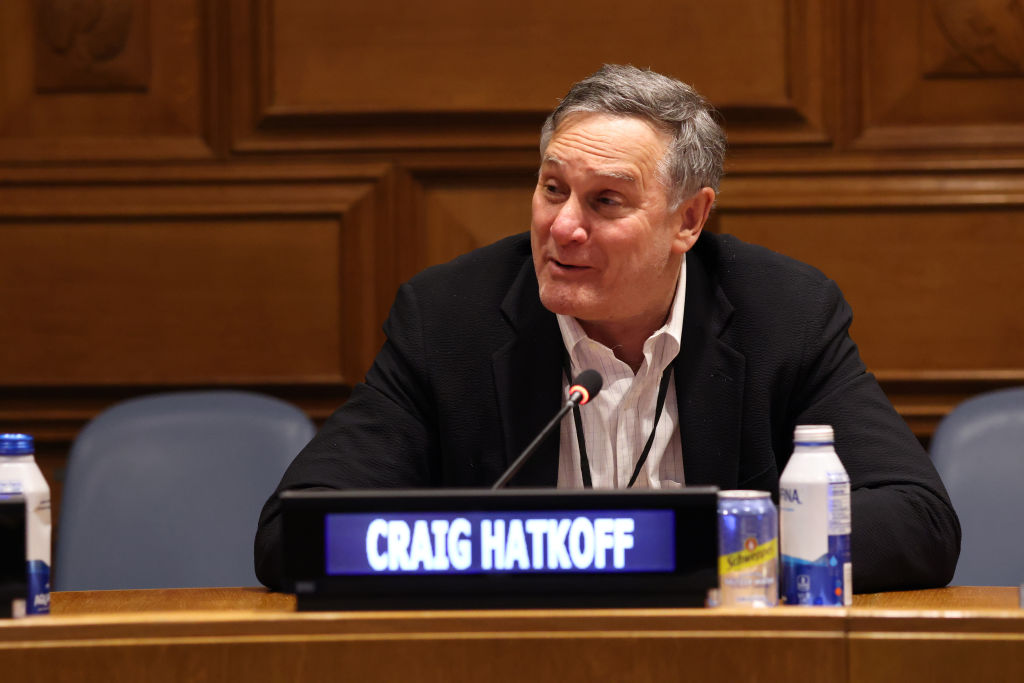
New York City-based real estate investor, he is one of three co-founders of the Tribeca Film Festival, Craig Hatkoff…
Philanthropist, art collector and chairman emeritus of The Estée Lauder Companies, Leonard A. Lauder… Chairman of the board of Americans for Democracy in the Middle-East, he is the rabbi of Temple Israel of the Poconos, in Stroudsburg, Pa., Daniel M. Zucker… Israeli politician, the daughter of former Prime Minister Yitzhak Rabin, she served as a member of the Knesset for three different political parties, Dalia Rabin-Pelossof … Former executive editor of The New York Times, Jill Abramson… Musician, composer, singer and songwriter, he was born in Buenos Aires and now lives in Jerusalem, Yehuda Julio Glantz… Actor, stand-up comedian and author, Fred Stoller… Executive vice president of merchandising at American Signature Furniture, Steven D. Rabe… Writer, critic and author, he writes often about klezmer, Jewish music and Bob Dylan, Seth Rogovoy… Retired partner at Latham & Watkins, Jonathan R. Rod… Neurologist in Naples, Fla., Brian D. Wolff, MD… Former collegiate and professional tennis player, now first vice chair of Camp Ramah Darom, Stacey Schefflin Slomka… Dean of students at Reichman University, she was previously a member of the Knesset for the Yesh Atid party, Dr. Adi Koll… Online producer, writer and director, who together with his brother Rafi are known for their React video series, Benny Fine… Brazilian-born entrepreneur and angel investor, he is one of the co-founders of Facebook, Eduardo Luiz Saverin… Former director of North American staff at Taglit-Birthright Israel, Aaron Bock… Member of the New York City Council, Lincoln P. Restler… Founder of two lines of jewelry, the Brave Collection in 2012, and Zahava (Golden, in Hebrew) in 2018, Jessica Hendricks Yee… Line producer at NBCUniversal in NYC, Emma Gottlieb… Discus thrower, he represented the U.S. at the 2020 Summer Olympics in Tokyo and the 2024 Summer Olympics in Paris, Samuel Harrison Mattis…


 Add EJP on Google
Add EJP on Google